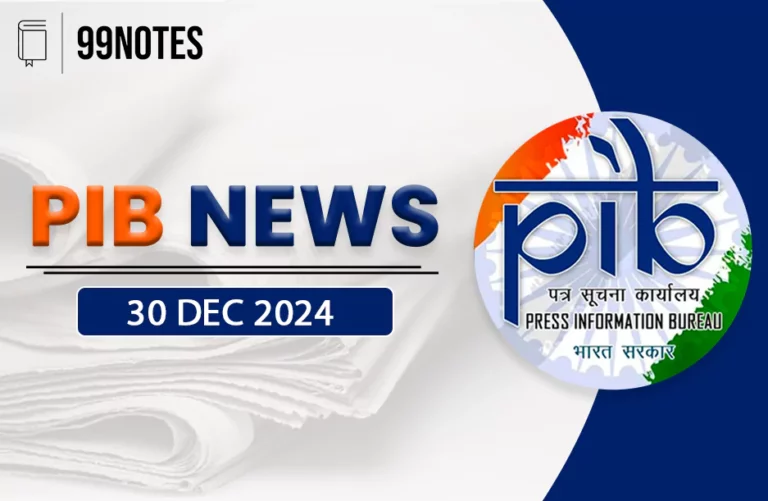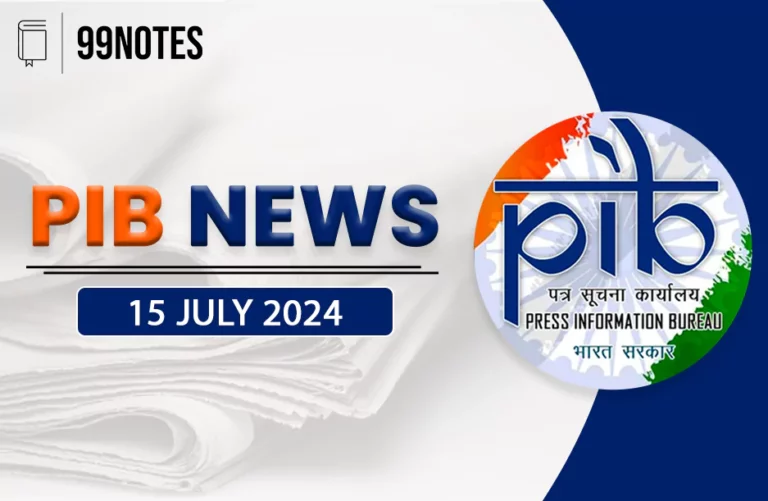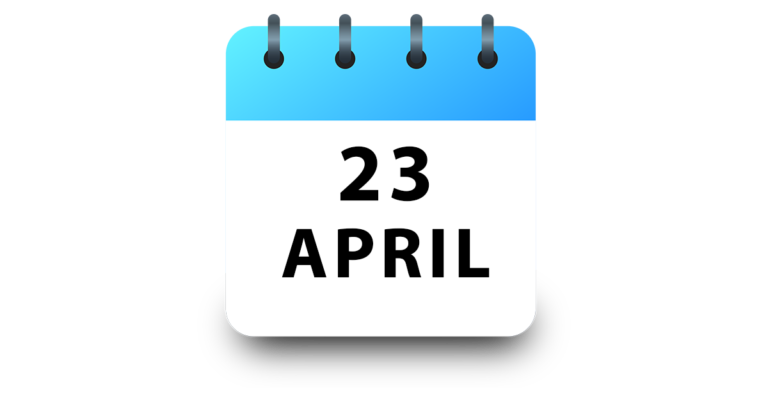27 Oct 2023 : PIB
PRESS INFORMATION BUREAU
27-Oct -2023
1. RCS- UDAN Completes 6 Successful Years
Topic: GS2 – Government initiatives
Context:
- The Regional Connectivity Scheme (RCS) – UDAN (Ude Desh Ka Aam Nagrik) is a government-backed initiative launched in 2016 to improve infrastructure and connectivity in India, especially in remote and underserved regions.
- The first RCS-UDAN flight connected Shimla to Delhi on April 27, 2017, and the scheme focuses on improving air travel accessibility in underserved regions.
- Over six years, RCS-UDAN has facilitated the travel of more than 1.3 crore (13 million) passengers, demonstrating its success.
About RCS- UDAN:
- A regional air connectivity scheme launched by the Government of India in 2016 to connect underserved and unserved airports in the country.
- Aims to make air travel more affordable and accessible to the common man.
- Provides subsidies to airlines to operate flights on regional routes.
- Has four categories of routes:
- UDAN 1: Connects unserved and underserved airports with the state capital and other major airports.
- UDAN 2: Connects airports within a region.
- UDAN 3: Connects airports in hilly and remote areas.
- UDAN 4: Connects airports in the North East region.
- Benefits of RCS-UDAN:
- Increased air connectivity to underserved and unserved areas.
- Reduced air fares.
- Boosted tourism and economic growth in regional areas.
- Created jobs in the aviation industry.
Source: https://pib.gov.in/PressReleseDetail.aspx?PRID=1971506
2. Time Series data of Direct Taxes shows improved Taxpayer compliance
Topic: GS3 – Indian economy.
Context:
- Number of individual income tax returns (ITRs) filed increased by 90% from 3.36 crore in Assessment Year (AY) 2013-14 to 6.37 crore in AY 2021-22.
- Average gross total income for individual taxpayers increased by 56% from AY 2013-14 to AY 2021-22.
- A total of 7.41 crore ITRs have been filed for AY 2023-24, with 53 lakh new first-time filers.
Advantages of better tax compliance:
- Increased Revenue: Higher tax compliance leads to increased government revenue, which can be used for public services and development.
- Improved Public Services: More tax revenue can be invested in improving infrastructure, healthcare, education, and other essential public services.
- Reduced Tax Evasion: Better compliance reduces tax evasion, creating a fairer tax system for all citizens.
- Economic Stability: Enhanced compliance contributes to economic stability by ensuring a steady flow of government funds.
- Lower Tax Rates: Improved compliance can lead to lower tax rates for individuals and businesses.
- Investment Attraction: A well-regulated tax system can attract foreign investment, stimulating economic growth.
- Legal Conformity: Better compliance promotes legal conformity, reducing the need for tax-related legal actions.
- Trust in Government: It builds trust in the government’s ability to manage public funds efficiently.
Challenges to tax compliance in India:
- Complex Tax Laws: The intricate and frequently changing tax laws in India can be challenging for taxpayers to understand and navigate.
- High Tax Evasion: A significant challenge is the prevalence of tax evasion, which reduces government revenue and undermines tax compliance.
- Informal Economy: A substantial portion of the Indian economy operates in the informal sector, making it difficult to enforce tax compliance.
- Corruption: Corruption within tax authorities can undermine tax compliance efforts and deter honest taxpayers.
- Lack of Awareness: Many individuals and businesses, especially in rural areas, may lack awareness of their tax obligations.
- Inefficient Tax Administration: Inefficiencies in tax administration can hinder compliance efforts and lead to taxpayer frustration.
- Complicated Filing Procedures: Cumbersome and time-consuming tax filing procedures can discourage compliance.
- Taxpayer Harassment: Instances of harassment by tax officials can deter taxpayers from voluntarily complying with tax laws.
- Inadequate Technology Infrastructure: Outdated technology infrastructure can slow down the tax compliance process and hinder efforts to modernize tax collection.
- Multiple Tax Authorities: The existence of multiple tax authorities, such as the central and state governments, can create confusion and compliance challenges.
- Resistance to Tax Reforms: Resistance to tax reforms and policy changes can impede efforts to improve tax compliance.
Reforms taken by Indian government for the betterment:
- Digitalization of Tax Administration: Using technology to streamline tax-related processes, making it more efficient and transparent.
- Simplification of Tax Laws: Making tax regulations and rules easier to understand and comply with.
- Rationalization of Tax Rates: Adjusting tax rates to make them fair and consistent.
- Strengthening of Enforcement: Enhancing measures to ensure tax compliance and deter tax evasion.
- Amnesty Schemes: Providing opportunities for taxpayers to disclose previous undisclosed income with reduced penalties.
- Pre-filled Tax Returns: Furnishing taxpayers with pre-populated tax return forms, reducing manual data entry.
- Electronic Filing of Tax Returns: Allowing taxpayers to submit their tax returns electronically, improving efficiency.
- Electronic Payment of Taxes: Enabling taxpayers to pay their taxes electronically, increasing convenience.
- Electronic Tax Deduction at Source (TDS): Automatically deducting taxes from payments like salaries or interest and remitting them electronically to the government.
- Tax Information Network (TIN): A digital platform for processing and managing tax-related information and payments.
Question: Discuss the impact of digitalization and simplification of tax administration on tax compliance and revenue collection in India.
Multiple-choice question
Regarding direct taxes in India, consider the following statements:
- Direct taxes are levied on individuals and corporations, and the tax liability is not transferable.
- Income tax and wealth tax are examples of direct taxes.
- The Central Board of Direct Taxes (CBDT) is responsible for administering and enforcing direct tax laws in India.
Select the correct option from the following:
- Only Statement 1 is correct.
- Statements 1 and 2 are correct.
- Statements 2 and 3 are correct.
- All of the above
Answer: Option D – All of the above.
Explanation:
- Statement I is correct. Direct taxes are imposed directly on individuals or entities and cannot be transferred to others.
- Statement II is correct. Income tax and wealth tax are examples of direct taxes, where the tax liability is based on the income or wealth of the taxpayer.
- Statement III is correct. The Central Board of Direct Taxes (CBDT) is the governing body responsible for administering and enforcing direct tax laws in India, including income tax and wealth tax.
Source: https://pib.gov.in/PressReleseDetail.aspx?PRID=1971680
3. National Event on Pradhan Mantri Matru Vandana Yojana to be held tomorrow in Mumbai.
Topic: GS2 – government initiatives
Context:
- The National Event on Pradhan Mantri Matru Vandana Yojana (PMMVY) to be held in Mumbai, Maharashtra.
Pradhan Mantri Matru Vandana Yojana:
- A maternity benefit programme launched by the Government of India in 2017.
- Provides a cash incentive of ₹5,000 in three instalments to pregnant women and lactating mothers for their first living child.
- Implemented by the Ministry of Women and Child Development.
- Eligible women must be registered with the Anganwadi Centre (AWC) in their area.
- To be eligible, women must be pregnant for at least 180 days and must give birth to a live child.
- The first instalment of ₹1,000 is paid at the time of registration, the second instalment of ₹2,000 is paid at the time of delivery, and the third instalment of ₹2,000 is paid after six months of delivery.
Multiple choice question:
Pradhan Mantri Matru Vandana Yojana (PMMVY) is primarily designed to:
Select the correct option from the following:
- Provide maternity leave to working women.
- Ensure free healthcare services for pregnant women.
- Offer financial assistance to pregnant and lactating women.
- Promote vaccination programs for infants.
Answer: Option C – Offer financial assistance to pregnant and lactating women.
Explanation:
- Pradhan Mantri Matru Vandana Yojana (PMMVY) is a government scheme that primarily aims to provide monetary support to pregnant and lactating women during their first two pregnancies, promoting maternal and child health.
Source: https://pib.gov.in/PressReleseDetail.aspx?PRID=1971248
For Enquiry

27 Oct 2023 : PIB

27 October 2023 : Daily Current Affair

27 October 2023 : The Hindu Editorial Notes PDF

26 Oct 2023 : Daily Quiz

26 Oct 2023 : Daily Answer Writing

26 Oct 2023 : Indian Express

26 Oct 2023 : PIB

26 October 2023 : Daily Current Affair

26 October 2023 : The Hindu Editorial Notes PDF

Reforms in Centre-State Relations
October 2023 PIB 27 Oct 2023 : PIB PRESS INFORMATION BUREAU
27-Oct -2023
Topic: GS3 – Fertilizers
Context:
The Union Cabinet,…
Daily Current Affairs 27 October 2023 : Daily Current Affair Daily Current Affairs
27-October-2023
1. For outreach events, civil servants will be called nodal officers,…
October 2023 The Hindu 27 October 2023 : The Hindu Editorial Notes PDF The Hindu Editorial
27-October-2023
1. Manipur needs a platform for ‘samvad’.
Topic: GS2 –…
Daily Quiz 26 Oct 2023 : Daily Quiz 26 Oct 2023 : Daily Quiz…
mains answer writing 26 Oct 2023 : Daily Answer Writing Mains Answer Writing
26-october-2023
1. The question of gender equality is central to the debate on…
Indian Express 26 Oct 2023 : Indian Express Indian Express
26-October-2023
1) Balance of Green Power
Topic: GS3- Environment
Context:
The article…
October 2023 PIB 26 Oct 2023 : PIB PRESS INFORMATION BUREAU
26-Oct -2023
1. Cabinet approves Nutrient Based Subsidy (NBS) rates for RABI…
Daily Current Affairs 26 October 2023 : Daily Current Affair Daily Current Affairs
26-October-2023
1. Rai demands action against senior official for stalling study…
October 2023 The Hindu 26 October 2023 : The Hindu Editorial Notes PDF The Hindu Editorial
26-October-2023
1. Women, marriage and labour market participation.
Topic: GS3…
Polity Reforms in Centre-State Relations Despite the various provisions made in the Indian Constitution for the smooth functioning of the Indian…




